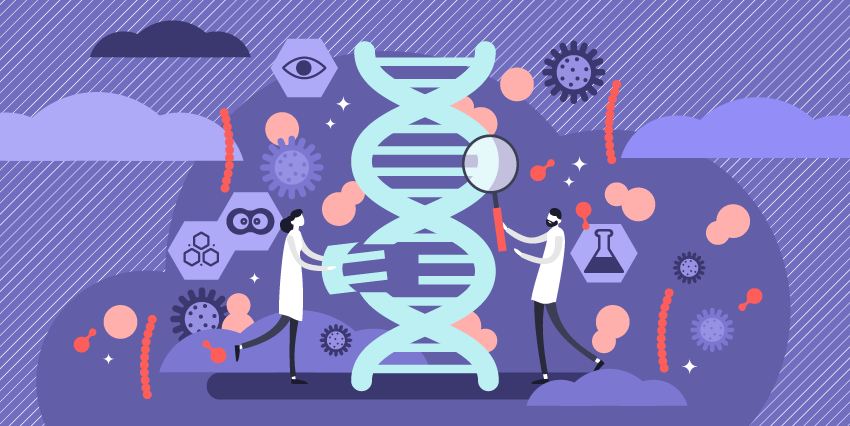About us
Learn how GA4GH helps expand responsible genomic data use to benefit human health.
Learn how GA4GH helps expand responsible genomic data use to benefit human health.
Our Strategic Road Map defines strategies, standards, and policy frameworks to support responsible global use of genomic and related health data.
Discover how a meeting of 50 leaders in genomics and medicine led to an alliance uniting more than 5,000 individuals and organisations to benefit human health.
GA4GH Inc. is a not-for-profit organisation that supports the global GA4GH community.
The GA4GH Council, consisting of the Executive Committee, Strategic Leadership Committee, and Product Steering Committee, guides our collaborative, globe-spanning alliance.
The Funders Forum brings together organisations that offer both financial support and strategic guidance.
The EDI Advisory Group responds to issues raised in the GA4GH community, finding equitable, inclusive ways to build products that benefit diverse groups.
Distributed across a number of Host Institutions, our staff team supports the mission and operations of GA4GH.
Curious who we are? Meet the people and organisations across six continents who make up GA4GH.
More than 500 organisations connected to genomics — in healthcare, research, patient advocacy, industry, and beyond — have signed onto the mission and vision of GA4GH as Organisational Members.
These core Organisational Members are genomic data initiatives that have committed resources to guide GA4GH work and pilot our products.
This subset of Organisational Members whose networks or infrastructure align with GA4GH priorities has made a long-term commitment to engaging with our community.
Local and national organisations assign experts to spend at least 30% of their time building GA4GH products.
Anyone working in genomics and related fields is invited to participate in our inclusive community by creating and using new products.
Wondering what GA4GH does? Learn how we find and overcome challenges to expanding responsible genomic data use for the benefit of human health.
Study Groups define needs. Participants survey the landscape of the genomics and health community and determine whether GA4GH can help.
Work Streams create products. Community members join together to develop technical standards, policy frameworks, and policy tools that overcome hurdles to international genomic data use.
GIF solves problems. Organisations in the forum pilot GA4GH products in real-world situations. Along the way, they troubleshoot products, suggest updates, and flag additional needs.
GIF Projects are community-led initiatives that put GA4GH products into practice in real-world scenarios.
The GIF AMA programme produces events and resources to address implementation questions and challenges.
NIF finds challenges and opportunities in genomics at a global scale. National programmes meet to share best practices, avoid incompatabilities, and help translate genomics into benefits for human health.
Communities of Interest find challenges and opportunities in areas such as rare disease, cancer, and infectious disease. Participants pinpoint real-world problems that would benefit from broad data use.
The Technical Alignment Subcommittee (TASC) supports harmonisation, interoperability, and technical alignment across GA4GH products.
Find out what’s happening with up to the minute meeting schedules for the GA4GH community.
See all our products — always free and open-source. Do you work on cloud genomics, data discovery, user access, data security or regulatory policy and ethics? Need to represent genomic, phenotypic, or clinical data? We’ve got a solution for you.
All GA4GH standards, frameworks, and tools follow the Product Development and Approval Process before being officially adopted.
Learn how other organisations have implemented GA4GH products to solve real-world problems.
Help us transform the future of genomic data use! See how GA4GH can benefit you — whether you’re using our products, writing our standards, subscribing to a newsletter, or more.
Join our community! Explore opportunities to participate in or lead GA4GH activities.
Help create new global standards and frameworks for responsible genomic data use.
Align your organisation with the GA4GH mission and vision.
Want to advance both your career and responsible genomic data sharing at the same time? See our open leadership opportunities.
Join our international team and help us advance genomic data use for the benefit of human health.
Discover current opportunities to engage with GA4GH. Share feedback on our products, apply for volunteer leadership roles, and contribute your expertise to shape the future of genomic data sharing.
Solve real problems by aligning your organisation with the world’s genomics standards. We offer software dvelopers both customisable and out-of-the-box solutions to help you get started.
Learn more about upcoming GA4GH events. See reports and recordings from our past events.
Speak directly to the global genomics and health community while supporting GA4GH strategy.
Be the first to hear about the latest GA4GH products, upcoming meetings, new initiatives, and more.
Questions? We would love to hear from you.
Read news, stories, and insights from the forefront of genomic and clinical data use.
Attend an upcoming GA4GH event, or view meeting reports from past events.
See new projects, updates, and calls for support from the Work Streams.
Read academic papers coauthored by GA4GH contributors.
Listen to our podcast OmicsXchange, featuring discussions from leaders in the world of genomics, health, and data sharing.
Check out our videos, then subscribe to our YouTube channel for more content.
View the latest GA4GH updates, Genomics and Health News, Implementation Notes, GDPR Briefs, and more.
Discover all things GA4GH: explore our news, events, videos, podcasts, announcements, publications, and newsletters.
9 Nov 2020
The central concepts of “identifiability” and of “personal data” are broadly defined in the GDPR, which can create challenges for actors in the health sector hoping to determine what data is regulated by the GDPR and what data is not.

The General Data Protection Regulation (GDPR) only applies to personal data, which is data that relates to “an identified or identifiable natural person” (a human). The central concepts of “identifiability” and of “personal data” are broadly defined in the GDPR, which can create challenges for actors in the health sector hoping to determine what data is regulated by the GDPR and what data is not.
Personal data can consist of “any information” relating to an individual through an identifier. The identifier can be a “name, an identification number, location data, an online identifier” and can also include factors that refer to the concerned person with reference to “the physical, physiological, genetic, mental, economic, cultural or social identity” of that person. For instance, a characteristic, code, or object that relates to a natural person may be considered that person’s identifier. Whole genome sequence data represents a rich network of potential identifiers. This makes such data difficult to anonymize, i.e. render non-personal.
Data can relate to the individual in “content,” “purpose”, or “effect”. Data relates to an individual in content if the substance of the data concerns the person. Data relates to an individual in its purpose if its intended use is to affect the interests of the concerned person, or to make determinations about that person. Last, data relates to a person if its processing is likely to have the result of affecting that person’s interests, even if such an outcome is not the primary purpose of the processing.
Regarding the “identifiability” of personal data, a contextual, risk-based approach should be adopted. Consequently, the identifiability of data is assessed relative to the factual circumstances of the data’s use, and to relative to other existing datasets that might reasonably linked to the data, rather than in the abstract. Further, data should only be considered identifiable if there is a foreseeable risk of re-identification. All means that are “reasonably likely” to be used to perform re-identification must be considered in determining if the individual is identifiable. According to the Court of Justice of the European Union, this test would include all means except those that are practically impossible to be used, or those that are illegal.
Data can be identifiable even if the controller or processor using the data is not able to perform re-identification themselves. This could be the case, for instance, if third parties can perform the re-identification of de-identified genetic data by combining such data with other accessible sources of genetic data held in ancestry databases.
For practical purposes, some academic commentators recommend assessing the likelihood that an individual could conceivably be re-identified as a result of the controller’s data use, and considering the degree to which such data use could affect the interests of the concerned individuals. This is consistent with risk-based approaches to GDPR compliance.
Last, personal data in the GDPR is distinct from similar concepts in other laws, such as Canadian data privacy legislation or the United States’ Health Insurance Portability and Accountability Act (HIPAA). International research consortia could thus face difficulties in establishing consistent policies regarding data governance, as regulated data may differ across participating jurisdictions.
Further reading
Relevant GDPR provisions
Alexander Bernier is a Montreal-based lawyer and an Academic Associate at McGill University’s Centre of Genomics and Policy.
See all previous briefs.
Please note that GDPR Briefs neither constitute nor should be relied upon as legal advice. Briefs represent a consensus position among Forum Members regarding the current understanding of the GDPR and its implications for genomic and health-related research. As such, they are no substitute for legal advice from a licensed practitioner in your jurisdiction.
